Beyond the Digitization Bit
By Sergio Vellante
Managing Board of ANIE Automazione
Virtual Reality, Big Data, Cyber Security, Cloud, Internet of Things, Industrial Daisy Chain… The terms of digitization have now entered the current language, are fashionable and are repeated like a mantra. If we try to go beyond the academic and literal meaning of these words and reflect on what they have in common, perhaps we can grasp the deeper meaning of digital transformation.
When we talk about digitization, we cannot just think about the introduction and learning of new technologies, but we must also look at the cultural change that this must necessarily bring about. Only then, it can be called a revolution.
Then every organization must spread a culture of renewal inside. People will have to perceive innovation not as an imposition to which one has to adapt in order to keep up, but as an opportunity for continuous improvement.
Let’s think of the effects of digital in the world of mechatronics and automation, for example we think of the Digital Twin concepts, the digital twin that allows the machine to simulate not only the product but the entire production process, or the machines’ vertical connection that ensures a performance analysis of the machine in terms of energy consumption and “predictivity”.
These Digital Engineering solutions will allow people to reduce their repetitive, boring and frustrating commitments, leaving room for their creativity and thus generating interaction between innovation and continuous professional development. And so, like every revolution, digital transformation also sees man as the trigger of innovation. In the era of interconnectivity, the emphasis is not on the individual as an individual but on the individual as a centre of relationships.
The resources’ training therefore returns to being a key point. Training is needed to strengthen and increase digital skills, and training investments are also needed to ensure greater professionalism of operators to increase their involvement and responsibility towards long-term strategic objectives. ANIE has been working for years on new training concepts and on the standardization of new technologies to ensure that innovation brings tangible benefits in terms of “safety & security”, quality of finished products. All the member companies have well internalized the concept: “there is innovation only if we are also able to reduce the environmental impact”.
The current economic situation is not entirely propitious, the tax incentives of the last two years will gradually fade away, but this does not mean that enthusiasm and creativity, the bearers of new effervescent and positive energies shown by all Italian companies, must be reduced.
